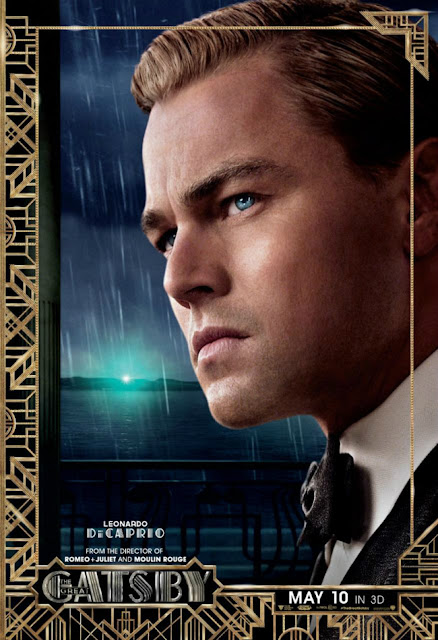Pity their untortured
souls, for no magic comes from the satisfied.
From the get-go, I was the perfect food for the Hollywood
hunger machine. And from my first reading of that slim miracle, I knew the
meaning of that green light at the end of Daisy’s dock. I didn’t need an
explanation because I felt it in my bones, the same way I instinctively felt
the meaning of a Hurrell portrait of Jean Harlow or Doris Day’s twinkle.
Simply put: like so many adolescents, I did not want to be
me. The wonderful thing about that green light is that we can all attach our
private meaning to it, but it all boils down to the same thing: The hope and
the lie of the American Dream. If you will it, it will come. If you work hard and
commit yourself and believe, it will come. You are not bound by social class,
ethnicity, name or the sins of the past. What a perfect message for 1925, the
year of Gatsby’s publication. Everything seemed possible.
At the same time there was Hollywood, standing astride the
world’s film industry that saw European markets devastated by World War I like
a king. And what royalty they created! They had been working at it for years,
but during the 1920s, they perfected the machine that produced glamour and
dreams and fed off the dreams and desires it created in the hearts of the
world.
Gloria Swanson, once a ribbon clerk, was now a real-life
marhioness, or whatever you call someone married to a marquis. Did she ever scrape Chicago off of her shoes? Did Clara Bow ever escape the Brooklyn girl
who was uneducated and raped by her father just because she lived in a dream
world and was adored by millions?
And, if your name didn’t fit the dream, you could change it,
just as you could change your appearance or your back story. Name changing in
the entertainment world wasn’t new. Mary Pickford ditched Gladys Smith before
she ever stepped in front of a camera. In the early days of film, Theodosia
Goodman of Cincinnati became Theda Bara, the daughter of an Arab Sheik and a
French woman, raised in the shadow of the Pyramids. That kind of malarkey was purely for fun and
probably no one really bought it, but it made for a good vamping story that
bought folks to the theater. However, somewhere in the 1920s, it all got very serious.
After all, millions were at stake and more and more people started really
believing make believe. Did Greta Garbo
ever miss Greta Gustafsson? Was Mary Astor able to shed Lucile
Vasconcellos Langhanke? Did Rodolfo Pietro Filberto Raffaello Guglielmi di
Valentina d’Antonguella ever really feel like Rudolph Valentino?
It’s a beautiful dream, but it is a dream, a fantasy. And
when you come to realize that, it is the ultimate heartbreak. That is why there
is always a tender spot in my heart for Gatsby, for Clara and, later, for poor Norma
Jean Baker. They believed and their hearts were pierced. As was mine, when I
realized I could not become anyone other than myself. Yet the allure persists.
It is powerful, this desire to alter the reality.
Daisy and Nick and Tom, those philistines, never had to long. They could graze in
another pasture, sample the “other,” but they were secure in their beings. They
did not long to be anyone other than themselves. Pity their untortured souls, for no magic comes from the satisfied.
The eternal truth of Gatsby smashes the lie of the American
Dream, so well perpetuated by Hollywood – or what passes for a universal “Hollywood”
these days. Jay Gatz could give himself a new name and fancy clothes and new
wealth, but the truth was cloaked in the lie. Believing the lie is the mistake
that leads to the heartbreak. Somehow, the truth always wins.
As a little girl I spent endless hours pouring through movie magazine
and classic Hollywood photo books. My dreams were built on those images. Oh
what magical lives Hayley Mills and Sally Field and Audrey Hepburn must have
had! I’m a big girl now and I have learned
that who you are, at your core, is the only truth and your true identity. It’s
fun to take flights of fancy and indulge in a little make believe, but the
trick is to never believe it is real. Cary Grant famously said “Everyone wants
to be Cary Grant. Even I want to be Cary Grant. I pretended to be somebody I
wanted to be until finally I became that person.” Based on what we know, even
the great Cary Grant spent endless hours trying to figure out the intersection
where Archie Leach met Cary Grant.
And still, like so many, who continue to watch and watch and
maybe hope and hope, I am spellbound by the magic of film, especially Hollywood
films of old.
The green light at the end of the dock is no different than
the thrill of the simultaneous darkening of the theater and the light of the
projector and the hope, the excitement that we can enter a new world, if only
for a short while. Unlike Gatsby, we don’t have to really believe it, unlike
Marilyn we don’t have to run head first to the green light. A person could get
burned if they linger there too long.





















